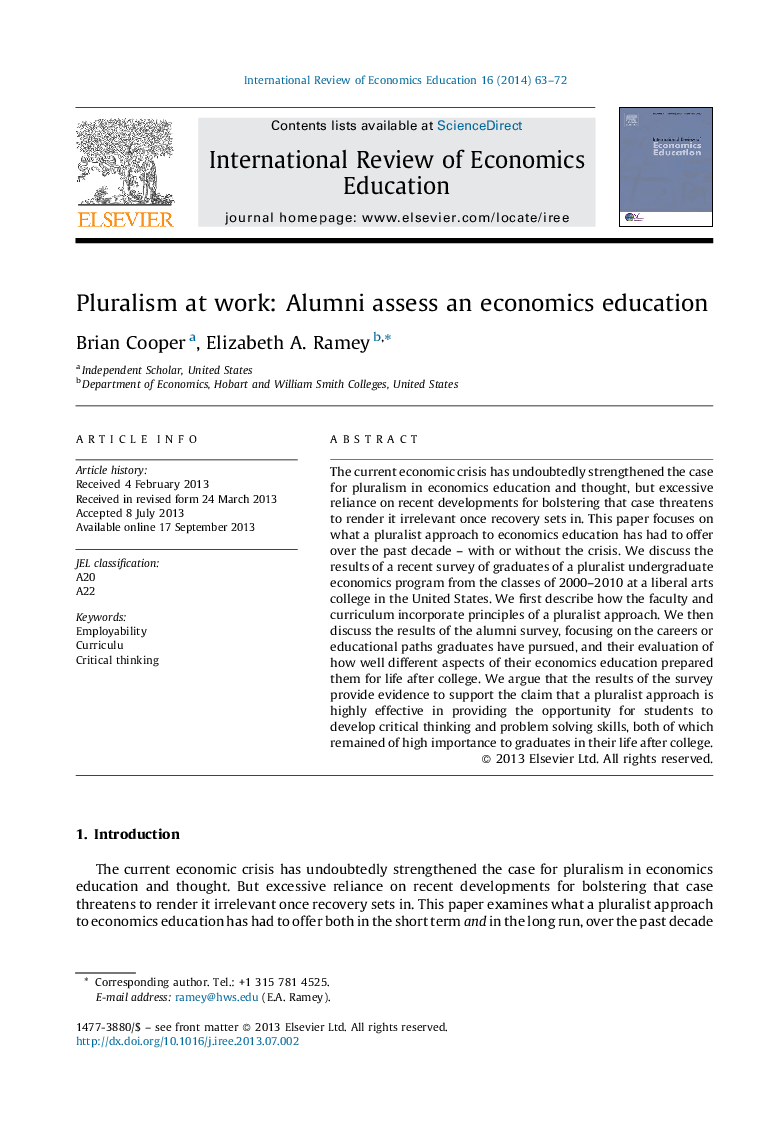| کد مقاله | کد نشریه | سال انتشار | مقاله انگلیسی | نسخه تمام متن |
|---|---|---|---|---|
| 357504 | 1435546 | 2014 | 10 صفحه PDF | دانلود رایگان |
The current economic crisis has undoubtedly strengthened the case for pluralism in economics education and thought, but excessive reliance on recent developments for bolstering that case threatens to render it irrelevant once recovery sets in. This paper focuses on what a pluralist approach to economics education has had to offer over the past decade – with or without the crisis. We discuss the results of a recent survey of graduates of a pluralist undergraduate economics program from the classes of 2000–2010 at a liberal arts college in the United States. We first describe how the faculty and curriculum incorporate principles of a pluralist approach. We then discuss the results of the alumni survey, focusing on the careers or educational paths graduates have pursued, and their evaluation of how well different aspects of their economics education prepared them for life after college. We argue that the results of the survey provide evidence to support the claim that a pluralist approach is highly effective in providing the opportunity for students to develop critical thinking and problem solving skills, both of which remained of high importance to graduates in their life after college.
Journal: International Review of Economics Education - Volume 16, Part B, May 2014, Pages 63–72
